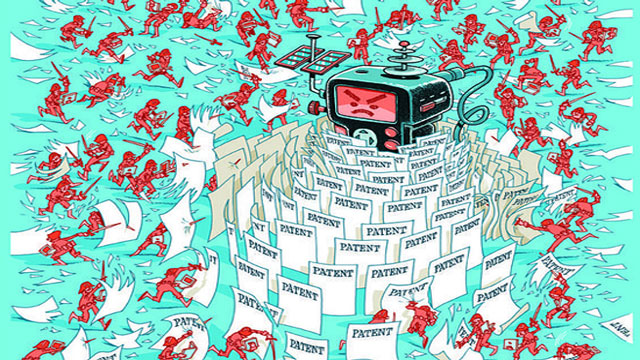The Republican Stupid-Party Spiral Dilemma

In an interview late last month, Republican senator Marco Rubio, who’s widely viewed to be laying the groundwork for a 2016 presidential run, announced that he doesn’t know how old the Earth is:
I’m not a scientist, man. I can tell you what recorded history says, I can tell you what the Bible says, but I think that’s a dispute amongst theologians and I think it has nothing to do with the gross domestic product or economic growth of the United States.
I can’t help suggesting that perhaps the reason for Senator Rubio’s confusion is because he’s looking in the wrong place for answers. Apparently, he thinks this is an issue for theologians to resolve, rather than, say, geologists.* (Theologians aren’t exactly famed for their precise and testable answers.) As a public service, perhaps I can help him out: Senator, the planet Earth is 4.55 billion years old. This is a well-established fact, supported by several independent lines of evidence.
For example, by assembling a list of which radioactive isotopes are found on Earth and which ones aren’t (because the shorter-lived ones have decayed away), we can set a lower limit on the planet’s age. We can get more precise numbers by obtaining the radiometric age of the oldest meteorites, which contain primordial material left over from the formation of the solar system, as well as through isochron dating, which gets around the fact that the oldest rocks on Earth have been destroyed and recycled by erosion and volcanism.
The problem is, of course, that Rubio’s answer doesn’t reflect honest confusion or lack of information. He was appealing to voters who believe in young-earth creationism, which entails taking the biblical book of Genesis and adding up the ages of the patriarchs descended from Adam and Eve, arriving at an age of about 6,000 years since the creation of the universe. This is a preposterously small number, considerably younger than the oldest cities in the world, which gives you a hint that maybe the Bible doesn’t make a good science textbook.
Whether Rubio himself believes this is irrelevant. What matters is that he has to affirm it to appeal to the Republican faithful, who are mostly religious fundamentalists who’ve dug in their heels against every major scientific discovery of the past 150 years. (At this point they’ve mostly given in and accepted heliocentrism, although some of them give it suspicious glances.) In their minds, they inhabit a pre-scientific cosmos where earthquakes and hurricanes are caused by God’s wrath, mental illness can be caused by demonic possession, and healing is more a matter of faith and prayer than it is of doctors and antibiotics.
Rubio is just the latest in a parade of Republican politicians who appeal to superstition as an electoral strategy. Texas governor Rick Perry, who was once a serious contender for the presidency, issued a proclamation calling on Texans to pray for rain to alleviate a crippling statewide drought and wildfire season. Pat Robertson, another former presidential candidate, has prayed for Supreme Court justices to die (they didn’t), prophesied the future based on divine revelation (he whiffed on every prediction), and ran for president, saying that it was God’s will (he lost). In 2012, the just-following-God’s-orders strategy was repeated by no fewer than four Republican candidates, all of whom lost. There’s even a Congressional Prayer Caucus, composed overwhelmingly of Republicans, which advocates prayer as a solution to our economic and social problems.
It’s not hard to see why Republicans have adopted this strategy: they’re just following the lead of their base. Ideas that once used to be the preserve of a few wingnuts on the fringe have reached epidemic proportions in the GOP. For example, according to a Gallup poll, the majority of Republicans are creationists, and other polls say that almost half hold to anti-Obama “birtherist” conspiracy theories.
It’s not coincidental that these trends overlap. These are symptoms of a community whose epistemic filters are badly broken: a community that’s enmeshed in a cocoon of self-delusion and denial. Louisiana governor Bobby Jindal warned that the Republicans are in danger of becoming, in his words, the “stupid party” – by which he presumably meant a party that ignores evidence and rationality and caters to the sullen anti-intellectualism and apocalyptic fever dreams of religious fundamentalists. This is a well-rooted fear, though Jindal himself isn’t the most convincing expounder of it, considering that he wrote breathlessly about witnessing demonic possession and exorcism in college.
But when it comes to climbing out of this hole, the Republicans have a serious demographic problem. The base of their support comes from conservative white Christians, who are increasingly concentrated in the Republican party even as they make up a smaller part of society as a whole. And as their ideas find less and less acceptance in wider society, the people who hold those ideas flee from that wider society and band together in a shrinking, ever-tighter circle of mutual support and validation. It’s a self-reinforcing spiral, which means that, for the foreseeable future, Republican politicians will have little choice but to appeal to the stupid-party demographic.
* After this post was written, Rubio stated that he agrees with the scientific consensus on the age of the earth. I think this is a clumsy backpedal after the criticism he got for his initial statement, but I’m mentioning it for fairness’ sake.
Image credit: Shutterstock
Daylight Atheism: The Book is now available! Click here for reviews and ordering information.





